
Fable II Review
The original Fable is something of an Xbox Classic, but unfortunately the many successes of the first game were overshadowed by the immense anticipation built up for it by the developers. Fable promised trees growing along with the character, offspring for the hero, and the most complex morality system to date.
The game failed to deliver on these promises, but managed to be a critical and commercial success, and the team were given another chance to fulfil their original vision for the world of Albion. Those disappointed by what Fable lacked stand to be very impressed by the content of Fable II.
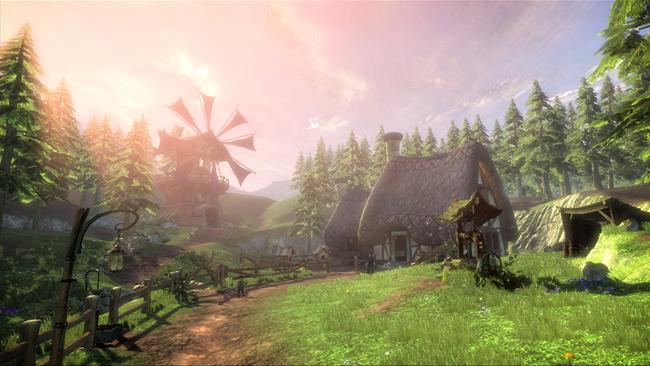
After playing Fable II for a short time, anybody will have a clear feeling of what the team was aiming for with this title – they wanted a living, breathing world, with characters and locations a player would enjoy visiting and enjoy being in rather than yet another epic storyline. Fable II is an RPG in the purest sense – it wants you to role play – it wants you to actually think like your character – or better – to make your character think like you.
Games with morality choices often get it wrong. They often offer a choice to the player, but that choice is usually between the actions of Satan himself and Mother Teresa. Even the best games with morality choices such as Bioware’s Mass Effect offer clear-cut choices that have the player thinking less about the consequences of their choice on the world and more about the consequences to their Gamerscore.
Fable II cleverly avoids this with a new concept – as well as your character potentially becoming good and evil, they can now also become pure or corrupt. The idea is simple – a good act would be to fend off bandits raiding a village rather than joining them. But is charging high rent or drinking too much alcohol evil? Not really. The game calls it corrupt. Therefore, you can be good and corrupt or evil and pure – or any combination therein. Like the original Fable, your choices will have a direct affect on your appearance.
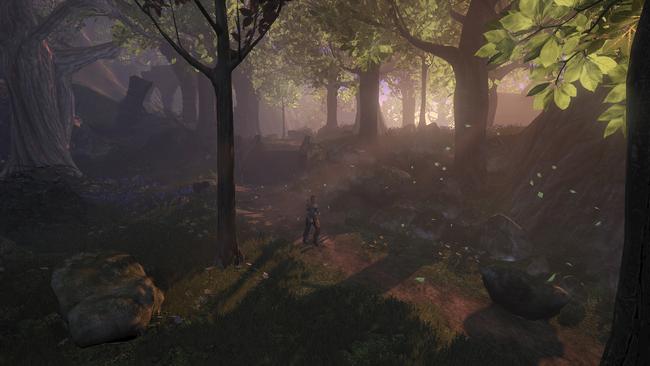
On the subject of appearance, another clever decision by the team at Lionhead is to have the health of the player determined by statistics alone – clothing has no effect. The reasoning is simple – in most games every player is using the same ‘ultimate’ set of armour. By having your resistance to attacks and health determined entirely by statistics, each player is free to dress their character uniquely and as they please, picking from the hundreds of items of clothing in-game.
Even your combat style will affect your appearance – brawlers will grow muscled and remain shorter, while magic users will develop tall and refined. Those who make heavy use of magic will see glowing blue veins of magic energy burst through their skin, and those who rely on fatty foodstuffs and snacks to heal their health will find their character overweight.
Almost every building in the world of Albion is available for purchase, from a tiny food stall in the town market to the big bad guy’s evil castle. All of these households or buildings can be controlled in some way – they can be used as a house, or rented – or profits from businesses can be taken and put towards weapons and clothes.
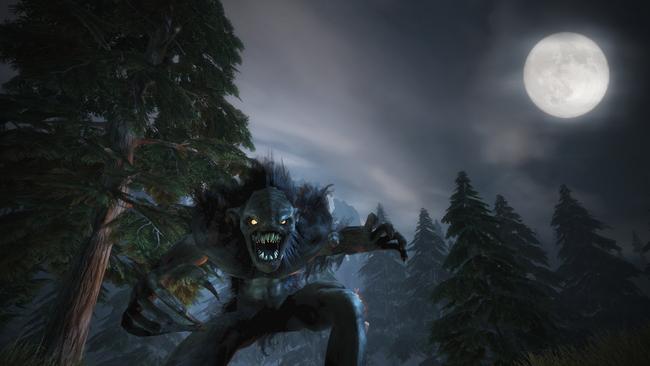
Marriage is back from the original game, now with the option to have children restored - offspring will grow as days pass in-game, and eventually they will be old enough to be influenced by the actions of the player. Already it is clear that Fable II delivers where the original sometimes fell flat. And yet... we haven’t even touched on combat yet.
Combat in Fable II is more simplistic than in the original game, but it has a depth that isn’t obvious at first. Each of the face buttons – X, Y and B – all have specific actions attached. X uses your melee weapon, Y your ranged weapon, and B your magic.
Generally speaking, a player should be able to get through the game tapping X if they wanted – but by stringing together combinations of the three styles, also using charged attacks and advanced techniques the combat becomes satisfyingly deep, with potential for great flourish within combos. There’s nothing more satisfying than pulling off an amazing combo and watching an enemy die in slow motion.
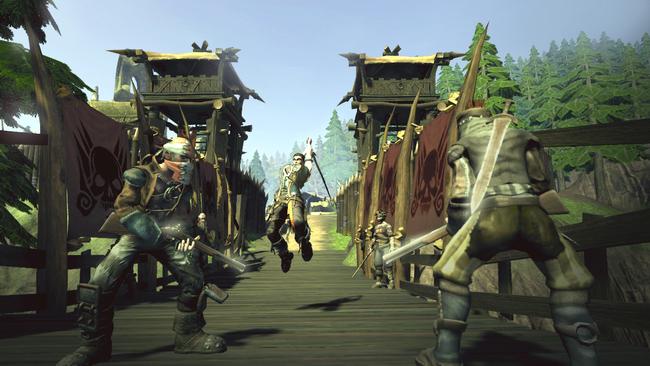
Combat is also context sensitive – if there is a fight at the edge of a cliff, for example, melee attacks will make an attempt to knock the enemy off the cliff to their doom. Dying isn’t a massive problem to players – as if you are knocked out, you will be revived again moments later with full health, though experience will have been penalized. This is a deliberate design decision to make the game accessible for all, but losing EXP will be a true pain for RPG nuts.
A special mention has to go to the dog, the player’s faithful companion that acts as a compass and guide. He will help by pointing out treasure, suggesting spots to dig, growling when enemies are near and even helping out by biting enemies who are floored during combat. It’s nice that rather than seeing a treasure chest highlighted or pointed out by a HUD the dog will bark – and you’ll have to follow the dog to see exactly what he’s discovered. It’s immersive.
The dog is an incredibly clever design choice – a great alternative to another chunky HUD, and a character that is ultimately believable and lovable in the world. It’s beautifully animated, and runs on AI based on that of the creatures from “Black and White” – so it’s extremely intelligent.
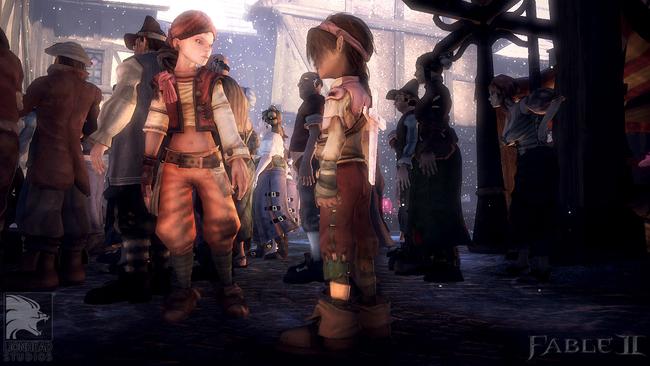
Fable II is fun to play, deep, has a plethora of sidequests and things to do, and is truly a role playing game by being highly customizable both in and out of combat. The world is beautiful, lush and well realized and the voice acting contains some of the best Britain has to offer. So what’s wrong with it?
The game isn’t perfect. There’s occasional slowdown and graphical glitches, and our review build obviously has online co-op locked out entirely. It quickly becomes difficult to keep track of commitments within the game, and the menus are clunky despite being pretty. The game sometimes gives the illusion of being linear when it really isn’t - something which might well deter some from trying sidequests and subplots.
That, in fact, is where the game is at its weakest – Fable II soars when players are browsing the world at a leisurely pace, enjoying the sights, sounds and options at their disposal. Fable II will fall flat for the kind of people who like to plough through storyline and nothing else.
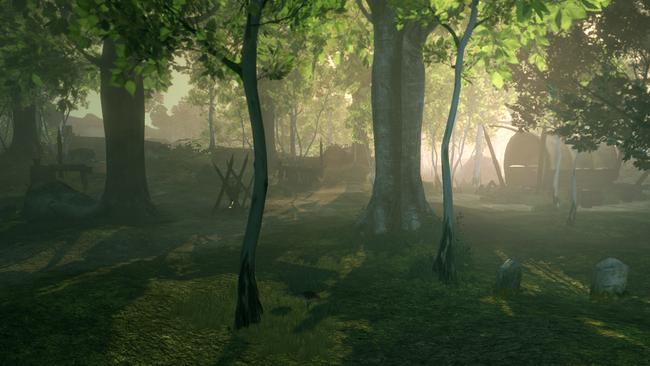
Throughout playing Fable II, two games have stuck in my mind as examples of similar experiences – and both are classics. The first is Shenmue. Like Shenmue, you’ll be tasked with getting a job – essentially a minigame - to help pay your way, and you’ll often spend more time playing silly side-games and distractions than you will the main plot.
Like Oblivion, much of the joy in Fable II comes from exploring the world and chatting to characters within it, while the main plot is takes a back seat. Combine concepts from these two and mix it in with things unique to Fable – marriage, children, morality, the ability to own businesses and honestly more interesting combat, and it’s a killer combination.
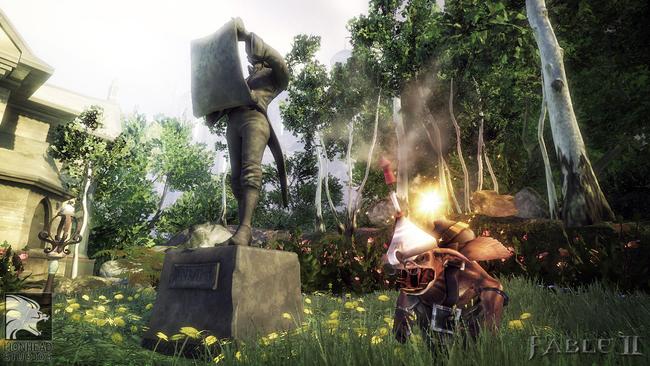
If you are the kind of gamer who just wants story, then Fable II may not be the 2008 RPG you’re looking for. If you’re the type who can’t look past minor, slightly annoying bugs or occasional slowdown, you may well find yourself hating Fable II.
Despite all its flaws, Fable II is an amazing game that is worthy of being noted as one of the best Western RPGs in recent history. Its fun to play, beautiful looking, funny, well animated, well acted and most importantly for a game of this kind extremely open world. While the storyline isn’t the longest in the world, it’s perfectly serviceable.
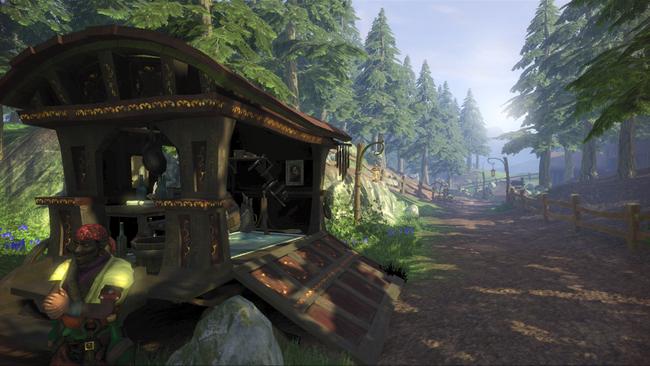
The world of Albion is truly a wonderful place to play in, and the game always does its best to draw the player in – be it through the constant changing appearance of your character and his dog to match your actions or how your child runs to greet you when you return to town from an adventure, Fable II is an RPG that remembers that role playing sometimes means more than equipping weapons and grinding for experience.
It means acting out a fantasy role, and forging your own path in an open world. Fable II allows you to do that better than almost every RPG before it.